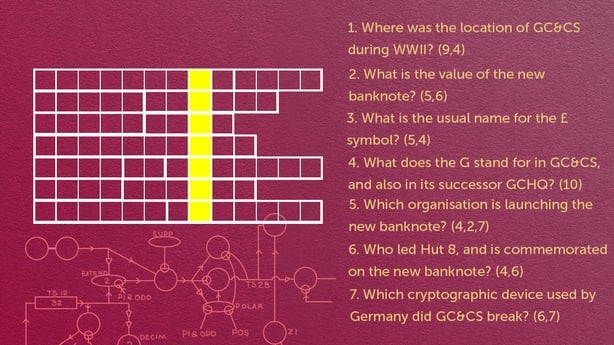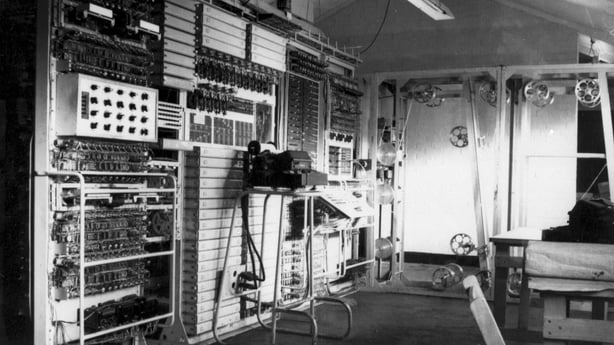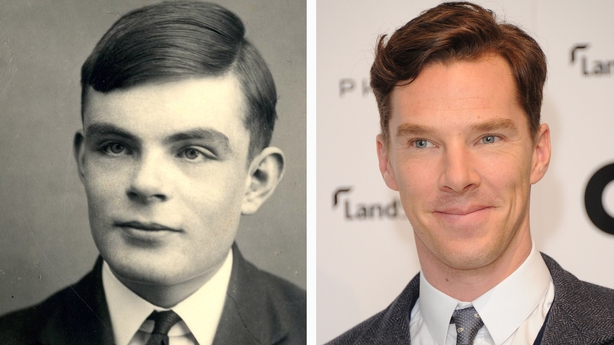British intelligence agency GCHQ has created its toughest puzzle ever in honour of Alan Turing appearing on the new £50 note.
The Bank of England revealed the note's design featuring the scientist and mathematician this morning.
It will enter circulation on 23 June, which was Turing's birthday.
GCHQ officials said their new treasure hunt involving 12 puzzles "might even have left him scratching his head".
Take the Turing Challenge here

Turing was a pioneer of modern computing and hugely instrumental in breaking the German Naval Enigma cipher in 1942, at Bletchley Park - GCHQ's wartime home.
Director of the cyber and intelligence agency Jeremy Fleming described him becoming the first gay man to appear on a banknote as confirming his status as "one of the most iconic LGBT+ figures in the world".
Mr Fleming said: "Alan Turing's appearance on the £50 note is a landmark moment in our history.
"Not only is it a celebration of his scientific genius, which helped to shorten the war and influence the technology we still use today, it also confirms his status as one of the most iconic LGBT+ figures in the world.
"Turing was embraced for his brilliance and persecuted for being gay.
"His legacy is a reminder of the value of embracing all aspects of diversity, but also the work we still need to do to become truly inclusive."
The puzzles are based on the unique design elements of the new banknote, such as the technical drawings for the British Bombe, the machine designed by Turing to break Enigma-enciphered messages.

GCHQ officials said the full challenge could take an experienced puzzler seven hours to complete.
Colin, a GCHQ analyst and its chief puzzler, said: "Alan Turing has inspired many recruits over the years to join GCHQ, eager to use their own problem-solving skills to help to keep the country safe.
"So it seemed only fitting to gather a mix of minds from across our missions to devise a seriously tough puzzle to honour his commemoration on the new £50 note.
"It might even have left him scratching his head, although we very much doubt it."
Turing joined the Government Code & Cypher School, GCHQ's wartime name, in 1938 to help with the code-breaking effort during World War II, working alongside Gordon Welchman.
In January 1940, Turing had a meeting in Paris with Polish counterparts, who gave him the insights he needed to design the Bombe.
The combination of the Bombe and the brilliant minds and perseverance of those working at Bletchley Park led to the breaking of Enigma.
In January 1952, Turing was prosecuted for "indecency" over his relationship with another man in Manchester.
He was given a choice between imprisonment and probation on condition of undergoing hormone treatment.
He underwent chemical castration with injections of female hormones to avoid going to jail. He also lost his security clearance to work with the spy agency.
Turing took his own life in 1954.
His story was recounted in the 2014 film The Imitation Game in which Turing was played by actor Benedict Cumberbatch.

He was granted a royal pardon by Queen Elizabeth II in 2013 for the criminal conviction that preceded his death.
"There's something of the character of a nation in its money," Bank Governor Andrew Bailey said in a statement.
"He was also gay, and was treated appallingly as a result," he said.
"By placing him on our new polymer £50, we are celebrating his achievements, and the values he symbolises."

